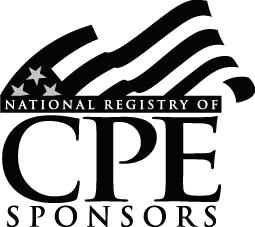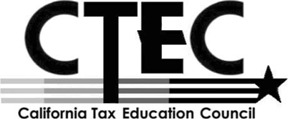
Money Laundering, Structuring, and Other Federal Tax Crimes
- Registration Closed
Money Laundering is an action taken to conceal the origin of illegally obtained money. We will be discussing a key element in a money laundering charge, which requires the government to establish that the assets in question are linked to a specified unlawful activity (SUA). SUA is a legal term that refers to a statutory list of crimes, and proceeds derived from crimes not on that list cannot be laundered. A money laundering charge in an indictment can drastically inflate the government’s ability to forfeit a defendant’s assets. We will discuss why it is crucial to know when a case involves money laundering and when it does not.
Structuring is a term used to describe a violation of 31 U.S.C. §5324, which prohibits the act of evading reporting requirements. 31 U.S.C. §5324(a), the most commonly violated section of the statute, deals with transactions involving financial institutions. We will review how this section is split into three subparts, each of which defines a different type of structuring charge. The IRS and DOJ have been using the structuring statute as a means for obtaining civil and criminal asset forfeitures. We will be reviewing the differences between the subparts – specifically between §5324(a)(1) and §5324(a)(3). We will also be discussing the scrutiny that assets forfeitures based on structuring violations have been receiving, and the recent DOJ and IRS policy changes.
Learning Objectives:
After this webinar you will be able to:
Describe the key element to a money laundering charge
Identify Specified Unlawful Activity
Recognize the significance of a money laundering charge in a criminal tax case
Identify strategies to analyze an indictment and identify pitfalls and opportunities
Describe Structuring and its various sub-parts
Explain the Klein conspiracy charge and its significance
Determine the impact of federal tax charges in the context of a criminal case
Discuss recent cases and IRS criminal Campaigns and policy changes
CPE Credit: 1 hours Federal Tax Law
Speaker: Ronald P. Andreozzi
NSA Webinar Program Level: Basic Prerequisites: None Advance Preparation: None Delivery Method: Group-Internet Based
No refunds or exchanges for cancellations. For more information regarding refund, complaint and/or program cancellation policies, please contact NSA toll-free at 800-966-6679.
Randy Andreozzi
Andreozzi & Bluestein LLP
Mr. Andreozzi’s legal career has focused on resolution of complex tax controversy matters, large case (corporate) tax matters, tax shelter litigation, employee welfare benefit litigation, and international/territorial tax issues.
For 16 years, Mr. Andreozzi worked for the IRS Office of Chief Counsel, where he served as Industry Counsel for the Commissioner’s Industry Specialization Program (ISP). He evaluated and litigated tax cases presenting Welfare Benefit Plan issues. Mr. Andreozzi litigated many seminal cases in this area, including General Signal Corp. v. Commissioner, Booth v. Commissioner, Parker Hannifin Corporation v. Commissioner, Square D Co. v. Commissioner and Neonatology Associates v. Commissioner. He also assisted and counseled other IRS attorneys and revenue agents in their development of cases under the ISP program, offering valuable expertise in areas involving tax shelters and the corporate income tax consequences of VEBAs and Welfare Benefit Plans.
During his years with the IRS Chief Counsel’s office, Mr. Andreozzi cultivated a strong reputation with attorneys and agents throughout IRS, as well as with outside tax practitioners nationwide. His extensive trial experience extends to other complex tax areas as well. Mr. Andreozzi tried a variety of complex precedential cases that have established important precedent in the areas of abusive tax shelters, corporate acquisitions (INDOPCO v. Commissioner), international taxation, United States Virgin Islands territorial taxation, and TEFRA partnerships.
Now in private practice with the firm of Andreozzi Bluestein LLP, Mr. Andreozzi continues to focus his practice on complex tax litigation and tax controversy resolution. His practice areas include international taxation and foreign bank account reporting, criminal tax and financial crime defense, employee benefit taxation, tax shelter litigation, and a variety emerging areas of federal and state tax law.
Mr. Andreozzi has published numerous articles on taxation, and frequently lectures on a variety of current and developing tax issues. He is an Adjunct Professor at the State University of New York (SUNY) at Buffalo School of Management, where he teaches Business Law at both the graduate and undergraduate levels. While he was with the IRS Office of Chief Counsel, he trained Chief Counsel trial attorneys at national litigation schools.




